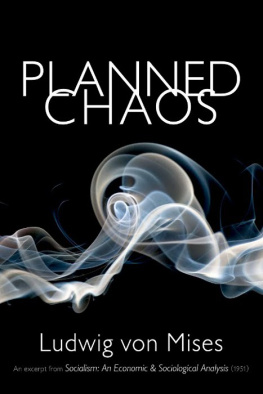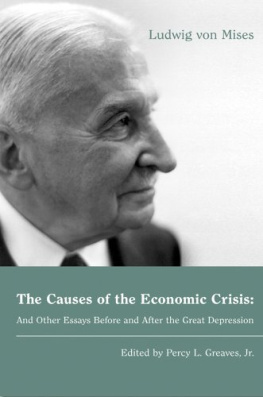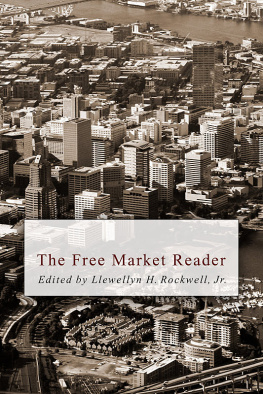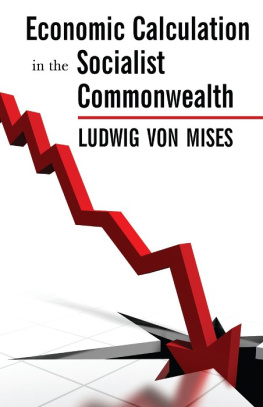

Introductory Remarks
The characteristic mark of this age of dictators, wars and revolutions is its anti-capitalistic bias. Most governments and political parties are eager to restrict the sphere of private initiative and free enterprise. It is an almost unchallenged dogma that capitalism is done for and that the coming of all-round regimentation of economic activities is both inescapable and highly desirable.
None the less capitalism is still very vigorous in the Western Hemisphere. Capitalist production has made very remarkable progress even in these last years. Methods of production were greatly improved. Consumers have been supplied with better and cheaper goods and with many new articles unheard of a short time ago. Many countries have expanded the size and improved the quality of their manufacturing. In spite of the anti-capitalistic policies of all governments and of almost all political parties, the capitalist mode of production is in many countries still fulfilling its social function in supplying the consumers with more, better and cheaper goods.
It is certainly not a merit of governments, politicians and labour union officers that the standard of living is improving in the countries committed to the principle of private ownership of the means of production. Not offices and bureaucrats, but big business deserves credit for the fact that most of the families in the United States own a motor car and a radio set. The increase in per capita consumption in America as compared with conditions a quarter of a century ago is not an achievement of laws and executive orders. It is an accomplishment of business men who enlarged the size of their factories or built new ones.
One must stress this point because our contemporaries are inclined to ignore it. Entangled in the superstitions of statism and government omnipotence, they are exclusively preoccupied with governmental measures. They expect everything from authoritarian action and very little from the initiative of enterprising citizens. Yet, the only means to increase well-being is to increase the quantity of products. This is what business aims at.
It is grotesque that there is much more talk about the achievements of the Tennessee Valley Authority than about all the unprecedented and unparalleled achievements of American privately operated processing industries. However, it was only the latter which enabled the United Nations to win the war and today enables the United States to come to the aid of the Marshall Plan countries.
The dogma that the State or the Government is the embodiment of all that is good and beneficial and that the individuals are wretched underlings, exclusively intent upon inflicting harm upon one another and badly in need of a guardian, is almost unchallenged. It is taboo to question it in the slightest way. He who proclaims the godliness of the State and the infallibility of its priests, the bureaucrats, is considered as an impartial student of the social sciences. All those raising objections are branded as biased and narrow-minded. The supporters of the new religion of statolatry are no less fanatical and intolerant than were the Mohammedan conquerors of Africa and Spain.
History will call our age the age of the dictators and tyrants. We have witnessed in the last years the fall of two of these inflated supermen. But the spirit which raised these knaves to autocratic power survives. It permeates textbooks and periodicals, it speaks through the mouths of teachers and politicians, it manifests itself in party programmes and in plays and novels. As long as this spirit prevails there cannot be any hope of durable peace, of democracy, of the preservation of freedom or of a steady improvement in the nations economic well-being.
1 The Failure of Interventionism
Nothing is more unpopular today than the free market economy, i.e., capitalism. Everything that is considered unsatisfactory in present-day conditions is charged to capitalism. The atheists make capitalism responsible for the survival of Christianity. But the papal encyclicals blame capitalism for the spread of irreligion and the sins of our contemporaries, and the Protestant churches and sects are no less vigorous in their indictment of capitalist greed. Friends of peace consider our wars as an offshoot of capitalist imperialism. But the adamant nationalist warmongers of Germany and Italy indicted capitalism for its bourgeois pacifism, contrary to human nature and to the inescapable laws of history. Sermonizers accuse capitalism of disrupting the family and fostering licentiousness. But the progressives blame capitalism for the preservation of allegedly outdated rules of sexual restraint. Almost all men agree that poverty is an outcome of capitalism. On the other hand many deplore the fact that capitalism, in catering lavishly to the wishes of people intent upon getting more amenities and a better living, promotes a crass materialism. These contradictory accusations of capitalism cancel one another. But the fact remains that there are few people left who would not condemn capitalism altogether.
Although capitalism is the economic system of modern Western civilization, the policies of all Western nations are guided by utterly anti-capitalistic ideas. The aim of these interventionist policies is not to preserve capitalism, but to substitute a mixed economy for it. It is assumed that this mixed economy is neither capitalism nor socialism. It is described as a third system, as far from capitalism as it is from socialism. It is alleged that it stands midway between socialism and capitalism, retaining the advantages of both and avoiding the disadvantages inherent in each.
However, it was not correct simply to identify interventionism and socialism. There are many supporters of interventionism who consider it the most appropriate method of realizingstep by stepfull socialism. But there are also many interventionists who are not outright socialists; they aim at the establishment of the mixed economy as a permanent system of economic management. They endeavour to restrain, to regulate and to improve capitalism by government interference with business and by labour unionism.
In order to comprehend the working of interventionism and of the mixed economy it is necessary to clarify two points:
First: If within a society based on private ownership of the means of production some of these means are owned and operated by the government or by municipalities, this still does not make for a mixed system which would combine socialism and private ownership. As long as only certain individual enterprises are publicly controlled, the characteristics of the market economy determining economic activity remain essentially unimpaired. The publicly owned enterprises, too, as buyers of raw materials, semi-finished goods and labour, and as sellers of goods and services, must fit into the mechanism of the market economy. They are subject to the law of the market; they have to strive after profits or, at least, to avoid losses. When it is attempted to mitigate or to eliminate this dependence by covering the losses of such enterprises with subsidies out of public funds, the only result is a shifting of this dependence somewhere else. This is because the means for the subsidies have to be raised somewhere. They may be raised by collecting taxes. But the burden of such taxes has its effects on the public, not on the government collecting the tax. It is the market, and not the revenue department, which decides upon whom the burden of the tax falls and how it affects production and consumption. The market and its inescapable law are supreme.
Next page















